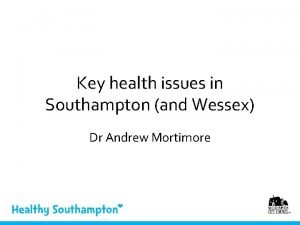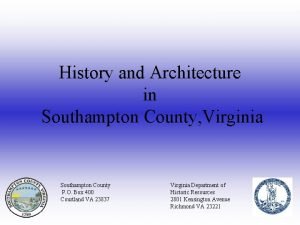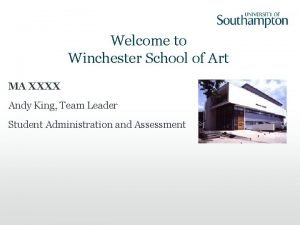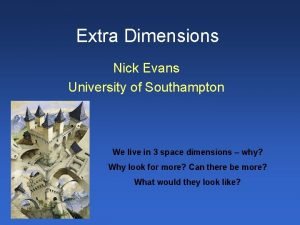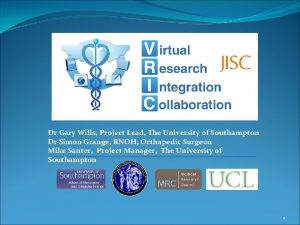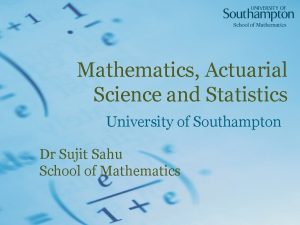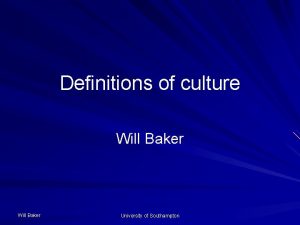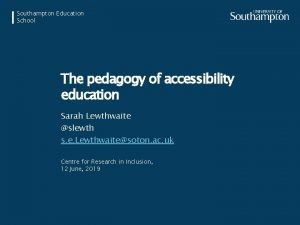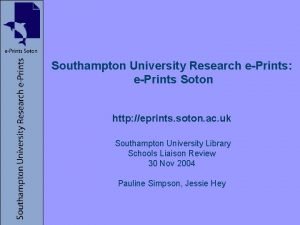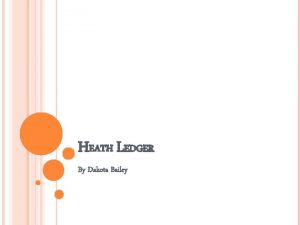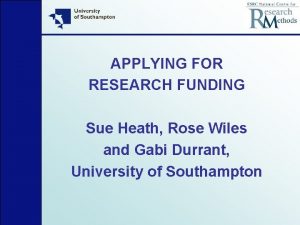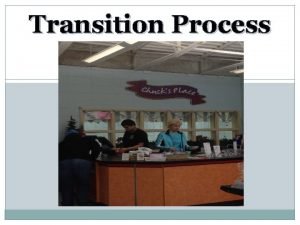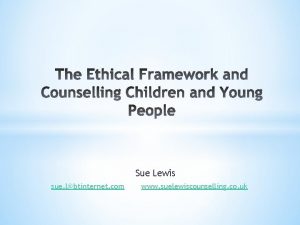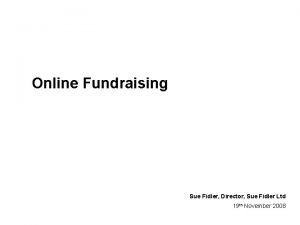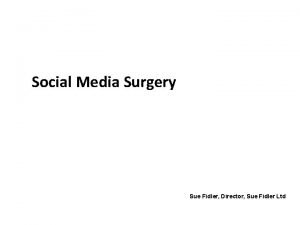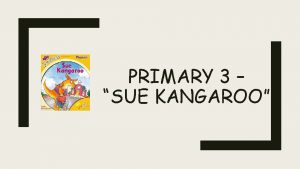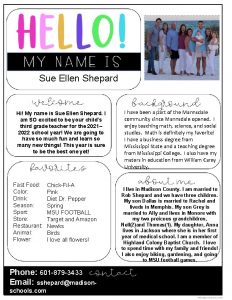Transition Sue Heath University of Southampton Session 31


















- Slides: 18

‘Transition’ Sue Heath, University of Southampton Session 31: Researching personal life and relationships

‘Transition’ • the act of passing from one state or place to the next • an event that results in a transformation • a change from one place or state or subject or stage to another

Closely linked to the life course and life stages • Youth transitions: school to work, domestic and housing transitions • Transitions into and out of relationships • Transitions into and out of parenthood • Transitions into retirement • Etc…

Transitions in time and space • (Youth) transitions metaphors are often suggestive of movement, eg pathways, navigations, trajectories, careers, yoyo transitions…

? • BUT beware assumptions of directionality and/or linearity

Individualised v collective transitions • Danger of producing individualised accounts as a possible artefact of (some) methods • Transitions occur in relation to others (and often directly involve others) • Intergenerational aspects of/consequences of transitions – implications for methods

Researching transitions through time • Longitudinal element: whether through retrospective accounts or through repeat contact • QLR is ideal (eg Timescapes), but often not possible • Widespread use of narrative/story telling techniques to gain sense of events unfolding over time • ‘Critical moments’ (positive or negative)

Researching transitions through time • Longitudinal element: whether through retrospective accounts or through repeat contact • QLR is ideal (eg Timescapes), but often not possible • Widespread use of narrative/story telling techniques to gain sense of events unfolding over time • ‘Critical moments’ (positive or negative)

Some creative methods for eliciting data on transitions over time • • • Timelines Memory books Art work Photo elicitation Ethnography Blog analysis


With thanks to the ‘Inventing Adulthoods’ team for permission to reproduce this image

With thanks to the ‘Inventing Adulthoods’ team for permission to reproduce this image


Exploring future hopes and aspirations • National Child Development Study (1958 cohort): essays at age 11 (13, 669 in total) Imagine you are now 25 years old. Write about the life you are leading, your interests, your home life and your work at the age of 25. (You have 30 minutes to do this). • Small sub-sample recently involved in qualitative interviews about their life stories

Pahl’s Isle of Sheppey study • The class of 1978 were asked to imagine that they were nearing the end of their life, and that something had made them think back to the time when they left school. They were then asked to write an imaginary account of their life over the next 30 or 40 years. • Currently being replicated amongst contemporary Sheppey school leavers by Graham Crow and colleagues (nb debates re appropriateness of essay format)

Thelma Veness’s ‘School Leavers’ (1962) • ‘One sixth former reports that his marriage was broken up by quarrels, which drove him into the Foreign Legion… Only one husband takes to drink (this is a girl’s essay, needless to say)… The interesting thing about the girls is that they not infrequently kill off their husbands at quite an early age. And the deaths are sometimes quite violent. . . Early and middle aged fatalities occurred in 54% of stories… One is tempted to think that for these girls, the wedding is what matters…’

Researching transitions through space • Mobile methods may be useful for capturing the spatial contexts of transition, eg Tom Hall’s work: ‘The conversations we are engaged in with young people in South Wales have linked place and biography through movement; they have been conducted on the move, out and about, with respondents invited to walk us through their changing locales as they talk us through their changing lives…’

Personal challenges of researching transitions • The dynamics of conducting fieldwork with different age groups • The potential pitfalls of ‘methodological generationalism’
 Enabling services southampton
Enabling services southampton Cronin cafe fordham
Cronin cafe fordham Pgr tracker soton
Pgr tracker soton Eprints southampton
Eprints southampton Street homeless prevention team southampton
Street homeless prevention team southampton Southampton township school district
Southampton township school district Public health england
Public health england Southampton county, virginia plantations
Southampton county, virginia plantations Sussed timetable
Sussed timetable Vevox.com login
Vevox.com login Southampton geothermal heating company ltd
Southampton geothermal heating company ltd Matt ryan southampton
Matt ryan southampton Dimensions southampton
Dimensions southampton Gary wills southampton
Gary wills southampton Southampton actuarial science
Southampton actuarial science Nick evans southampton
Nick evans southampton Will baker southampton
Will baker southampton Southampton education school
Southampton education school Eprints soton
Eprints soton






